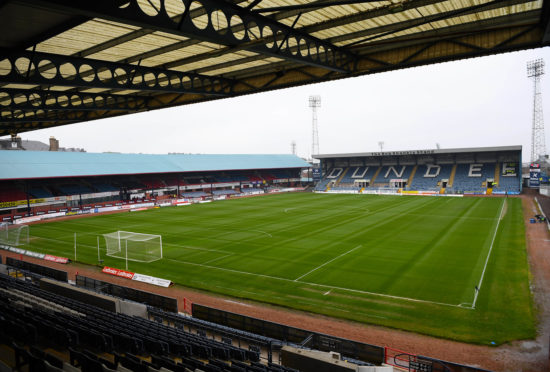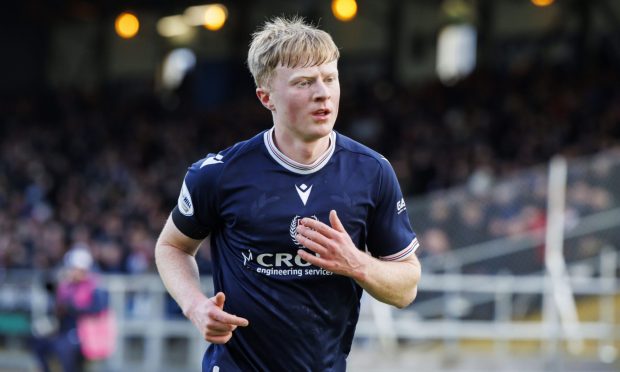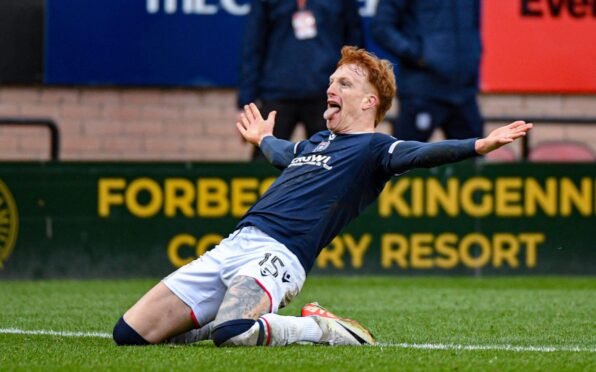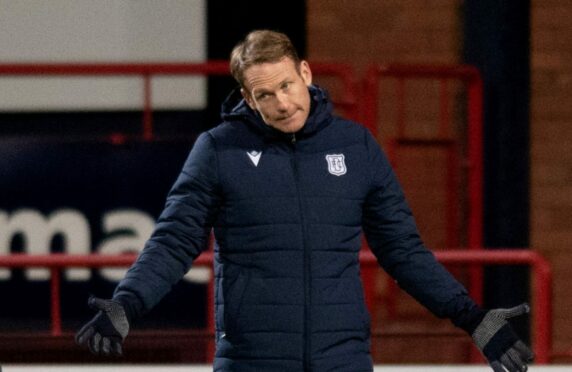Sir, – As someone who likes to see both of our full-time professional football clubs prosper I write to express concerns for the local community should Dundee FC not recover from their current financial plight.
Despite no football since mid-March, and little prospect of Scottish Championship matches until October, it still has to be said that Dundee FC have – yet again – let down their fans and the local businesses which serve them by failing to practise good housekeeping.
Football finances have been hit hard by Covid-19, albeit with many clubs offsetting losses by utilising the government’s furlough scheme. However, I believe those in charge at Dens Park have failed to behave responsibly and with any business acumen.
When justifying hefty prices for admission, stadium snacks and souvenirs, football clubs are quick to remind fans they are a business. Yet, they seem to abandon basic business practices in running their own operations.
Dundee, before lockdown, were lucky to get 3,000 paying customers a fortnight.
This is similar to running a supermarket on a corner shop budget. However, the big difference is whilst the supermarket and corner shop both ensure their payroll is a manageable percentage of their turnover, Dundee splash the cash as if there’s no tomorrow.
The overwhelming majority of players accepting a 30% wage reduction is a step in the right direction, but it doesn’t help that Dundee have a chief executive, a manager and a director of football who between them take almost £400,000 out of the club a year.
Cuts have to be made but instead of starting at the top where the biggest savings are to be had, the club axe the main hope for the future – their youth academy.
It makes no sense.
Whilst senior managers haemorrhage the little money the club has, the same individuals sever the very lifeblood of the club – the young stars of tomorrow.
Dundee have already plunged twice into the dangerous waters of administration.
Should they fail to get shipshape soon, they might find this time they sink without trace.
There is a chance to avoid this but those who run Dundee must behave like sensible, responsible business leaders.
Stop paying yourselves salaries disproportionate to turnover, and stop taking for granted the support of the fans and local businesses.
Most importantly, nurture and safeguard the young players. They are the future and, goodness knows, that is something which certainly can’t be taken for granted.
Jamie Buchan.
Grove Road,
Dundee.
A question of the right balance
Sir, – Messrs Orr and Hinnrichs and others of that ilk appear to believe anyone who criticises them or the SNP is clearly a Tory-supporting unionist. That is not the case at all. There are many of us who can see that an independent Scotland could not have financially survived the dire economic effects of this dreadful pandemic without the help of the UK Government which has been a lot more generous than the immature moaning of some young and very inexperienced politicians would have us believe.
I agree Boris Johnson has not exactly been a beacon of hope in these difficult times, but the Scottish Government has made many mistakes too. The Nike conference Covid-19 debacle, the non-delivery of laptops to vulnerable children, the ignoring of the results of a pandemic exercise over two years ago pointing out the severe shortage of PPE, the discharging of hospital patients to ill-equipped and understaffed care homes, the failure to give out much-needed grants to SMEs in spite of the fact UK money is held by Holyrood for this purpose. The list is not endless but makes dis-heartening reading.
A quote from Richard Holloway made me think: “We get imprisoned within the certainty of an idea or point of view and find it impossible to get a balanced possibility of doubt about it.”
As an ex-Army man, I do not hold much faith in any politicians, but I do believe the way forward for a happier and more economically sound UK, including Scotland, lies in federalism.It works in America, Germany, Australia and other democracies, so why not here? We’re not all extremists and dreamers.
John D. Ridley.
Spoutwells Drive,
Scone.
How devolved budgets work
Sir, – Despite frequent articles, explanations and letters, some correspondents still fail to understand how devolved government funding, and hence budgets, works.
The devolved administrations are not allowed to borrow money or create money, which is a reserved power.
Holyrood is allocated a sum from Westminster and is allowed to distribute those funds to suit our particular needs.
This sum has proportionally and effectively been decreasing over the years particularly because of austerity, which was a Conservative policy.
It is a fallacy to think we are only able to survive the pandemic because somehow Westminster has grown a magic money tree to dispense largesse.
Westminster can only scatter money around because it has reserved for itself the ability to borrow and print money.
This money will be paid back via tax and other measures over forthcoming decades. All sovereign independent nations have this ability.
We only need handouts from Westminster because we are not allowed to do the same, and are dependent on them passing a small proportion of our tax revenues back to us.
Nick Cole.
Balmacron Farmhouse,
Meigle, Perthshire.
Too wee, too poor, too stupid?
Sir, – Robert IG Scott (“Showing their true colours”, Letters, July 11) raises the old unionist argument, that Scotland is totally dependent on the UK, and couldn’t survive as an independent nation. Too wee, too poor and too stupid.
Too wee: Scotland is a middle-sized nation in world terms, 115th out of 234, about the same size as Ireland, and twice the size of Denmark, Netherlands and Switzerland, three prosperous independent European states.
Too poor: Norway is a bit bigger than Scotland, with a more challenging climate and terrain, much poorer than Scotland not long ago, yet now one of the world’s wealthiest nations. How come?
It discovered oil, in the same seas, roughly the same quantities and at the same time as Scotland but, being independent, could manage its own wealth to benefit its own people.
Scotland’s oil wealth was routed through Westminster, where it funded foreign wars and UK vanity projects, and disappeared into the offshore bank accounts of the rich and powerful.
Too stupid: well, despite having three of the top 100 universities in the world, and a highly educated population, I concede we are stupid to put up with being controlled by another country, almost always by a governing party for which the people of Scotland rarely vote, who treat us with contempt.
Fortunately the Scottish people are seeing, in the clarity of coronavirus and the coming Brexit disaster, a corrupt and incompetent Westminster Government with no concern for Scotland, and we are now, in increasing numbers, accepting the only sensible way ahead for Scotland is as an independent nation.
Les Mackay.
5 Carmichael Gardens,
Dundee.










